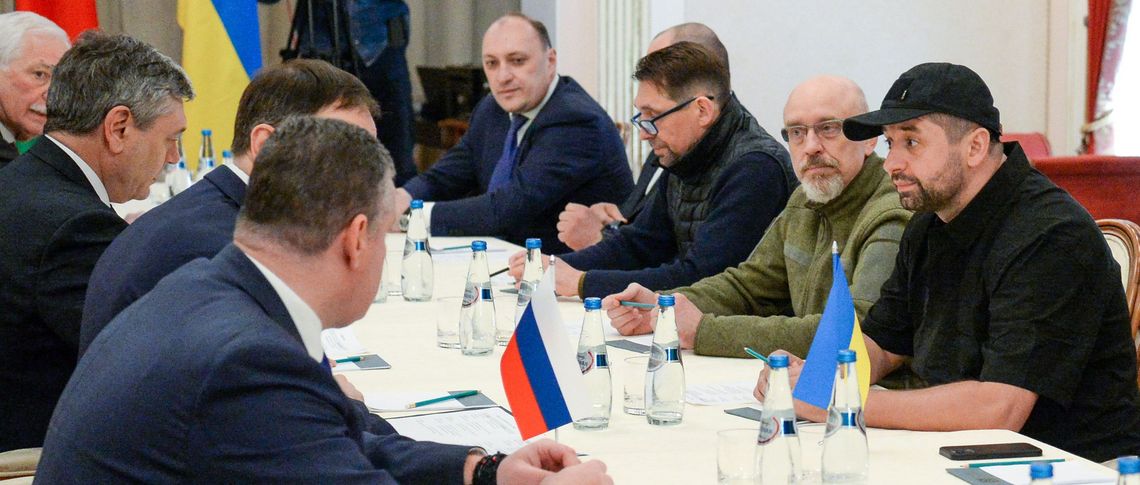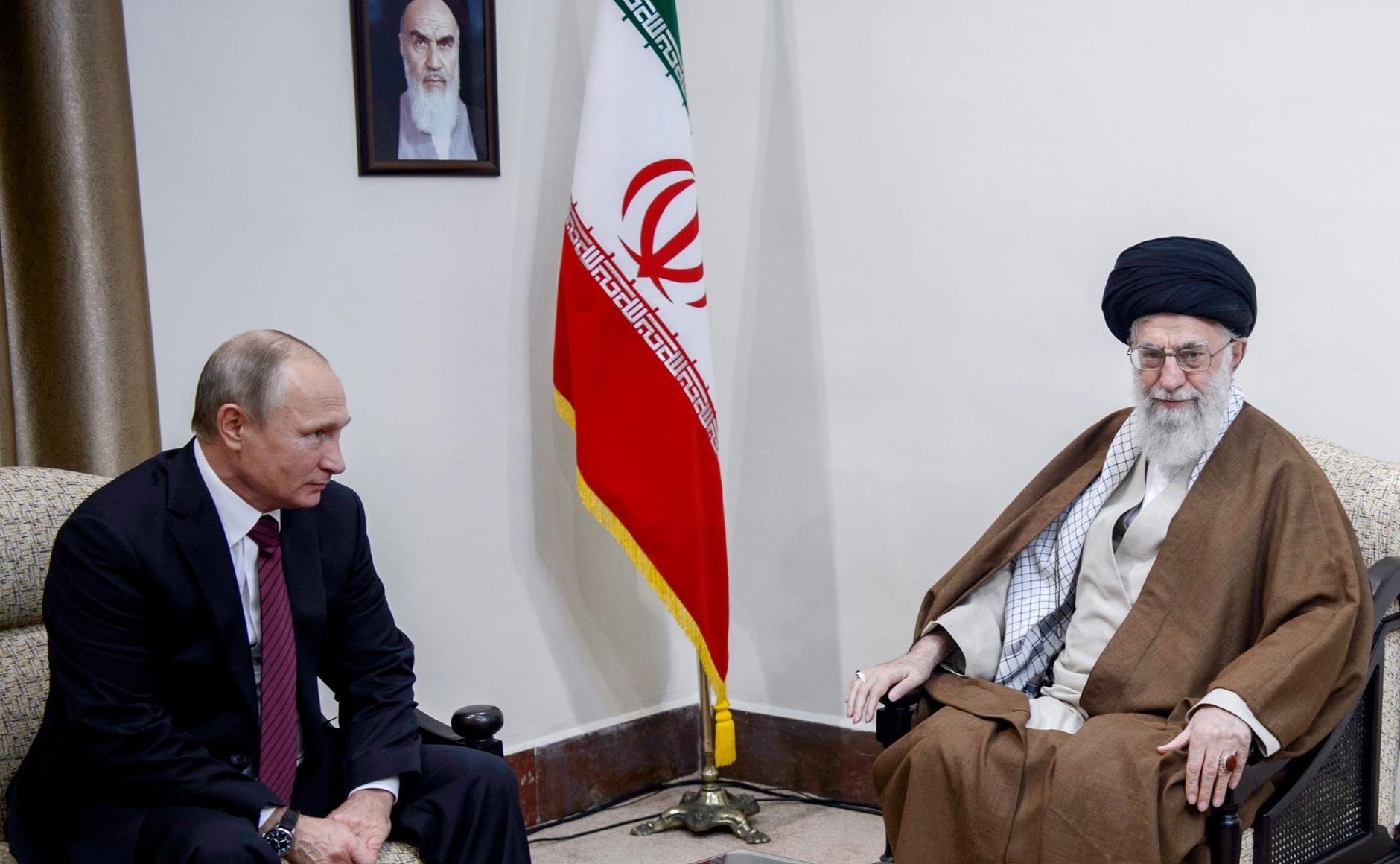
Ukraine’s Deeply Flawed Blueprint for Guaranteed Neutrality (Part One)
Ukraine’s Deeply Flawed Blueprint for Guaranteed Neutrality (Part One)
Turned away from the North Atlantic Treaty Organization’s (NATO) purportedly “open door” (see EDM, March 30), Kyiv has submitted its official proposals to Moscow for a treaty on Ukraine’s neutrality under international guarantees. The Kremlin has taken Kyiv’s proposals under consideration at the latest round of bilateral negotiations, held in Istanbul on March 29. Ukraine’s top negotiators have made public the gist of their proposals, followed by extensive comments from the Russian side.
Precluding Ukraine from joining NATO (and, in parallel, intimidating NATO’s Western powers into turning Ukraine away) has long been a Kremlin top-priority objective, now approaching fulfilment on both of those counts. Turning Ukraine into a neutral country also topped the list of Russia’s war aims at the outset of its current invasion of Ukraine (see EDM, February 22, 24, 25).
It is hard to find a precedent case whereby an invaded country proposes to negotiate its future security arrangements with the invading power, even as the invasion goes on at full throttle. Bilateral Ukrainian-Russian negotiations are under way since February 28, while Russian forces hold sizeable Ukrainian territories (far beyond the 2014–2015 armistice lines), and as Russian air and missile strikes destroy Ukrainian cities and infrastructure with every passing day, forcing millions of Ukrainians to flee abroad. Moscow has rejected Kyiv’s pleas to cease fire for the duration of these negotiations. Although the Ukrainians have valiantly stopped Russian ground forces from advancing even deeper into Ukraine, stalemate on the ground (along with Russian air and missile supremacy) translates into Russia’s overwhelming advantage over Ukraine in the negotiations.
Kyiv is negotiating under the gun in a far more dramatic sense than even in 2014–2015 with the Minsk “agreements.” The current situation—along with the deficit of expertise in Kyiv’s Presidential Office, which handles these negotiations—account for the flaws in this hurriedly produced blueprint of Ukraine’s internationally guaranteed neutrality. The proposal’s full text has not been made public; instead, Kyiv’s top negotiators have presented its highlights (President.gov.ua, Ukrinform, March 29–31).
The Ukrainian proposals aim at a two-part deal with Russia: a Ukrainian-Russian treaty that would end the war and another treaty that would define the terms of Ukraine’s neutrality with accompanying international guarantees. Under Kyiv’s proposals, the terms of Ukraine’s neutrality would be negotiated between Kyiv and Moscow bilaterally, whereupon a number of Western and non-Western powers alongside Russia would be asked to jointly guarantee the product of the bilateral Russian-Ukrainian agreement.
Under Kyiv’s proposals, Ukraine shall not join the North Atlantic Alliance, shall commit to a non-bloc status, and will obligate itself to not produce or host nuclear or other weapons of mass destruction. Ukraine shall not host foreign military bases on its territory nor allow the deployment of foreign troop contingents in the country. Any military exercises in Ukraine could only be held with the consent of the guarantor-countries.
Defining what constitutes foreign military bases will probably be a matter for negotiation between Ukraine and Russia bilaterally, without Western participation since Ukraine abandons its NATO aspirations under this treaty. From Moscow’s standpoint, the Yavoriv military training range (where personnel from several NATO countries trained Ukrainian soldiers) was undoubtedly a “base,” which is why Russia demonstrably devastated it with missiles strikes on March 12. Under these provisions, Russia as a guarantor country gains a veto right over the size and character of military exercises in Ukraine (see above).
Under these proposals, in the event that Ukraine becomes the object of a military aggression, “hybrid” or paramilitary operation, or be threatened with such actions on its own territory, the guarantor countries would then be obligated to consult among themselves within a maximum 72 hours and provide Ukraine with assistance in the form of military intervention on their part, provision of weapons to Ukrainian forces, and/or no-fly-zone(s) over Ukraine.
The activation of this procedure and the outcome of consultations, however, are obviously vulnerable to the veto of any one guarantor country, which would likely be Russia.
Kyiv’s negotiators naïvely take for granted the willingness and readiness of about a dozen countries to commit themselves to acting as guarantors (see EDM, March 30) and even suggest that the treaty of guarantees should be open to additional signatory countries in the future.
The guarantees and the commitments they entail would be ratified by the parliaments of the guarantor countries and would be legally binding. Kyiv’s negotiators (in tune here with the Ukrainian public at large) are determined to resist a non-binding document like the 1994 Budapest Memorandum—“our birth trauma,” as some Ukrainian negotiators describe it retrospectively.
Those guarantor countries that are members of the European Union would also commit to fast-tracking Ukraine to join the EU as a full member. This would allow Ukraine to “bypass the EU’s overly bureaucratic procedures” (Ukrinform, March 29) in the illusory view of Ukrainian negotiators.


